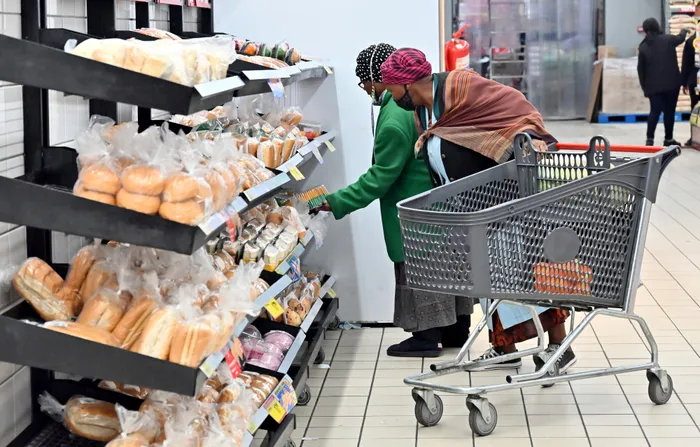
Pietermaritzburg Economic Justice and Dignity Group (PMBEJD) household affordability Index for November released on Wednesday indicated that the food basket Month-on-month: decreased by R27,07 while year on year it increased by R52,49.
Image: Ayanda Ndamane/ Independent Newspapers.
The Pietermaritzburg Economic Justice and Dignity Group’s (PMBEJD) Household Affordability Index for November shows a slight month-on-month decline in food costs, but civil society groups warn that nutritious food remains out of reach for millions of South Africans as the festive season begins.
The index, released on Wednesday, shows that the average household food basket cost R5 413.53 in November, down R27.07 (-0.5%) from October. However, the basket is still R52.49 (1.0%) more expensive than it was a year ago.
PMBEJD director Mervyn Abrahams said 17 of the 44 tracked foods increased in price during November, while 27 items became cheaper.
Using Pietermaritzburg-based transport and electricity costs, PMBEJD estimates that these two necessities consume 60.4% of a worker’s wage (R2 781.85 of R4 606.40). That leaves only R1 824.55 for food and all other expenses — less than half of what a nutritious food basket costs.
"Food is bought after monies for transport and electricity have been paid for or set aside (leaving R1 824.55 – for food and everything else), and so in November 2025, PMBEJD calculates that workers’ families may underspend on food by a minimum of 50.7% (having R1 824.55 left over after transport and electricity have been paid, and with food for the month costing R3 699.52)," he said.
"In this scenario there is no possibility of a worker being able to afford enough nutritious food for her family.”
Aliya Chikte, project officer at the Alternative Information and Development Centre (AIDC), said food remains out of reach for most households
“With 18 million adults living in poverty, the Social Relief of Distress (SRD) grant reaches only half of them, leaving a critical gap. This low coverage for working-age adults is a deepening crisis, exacerbated by mass unemploymentt,” Chikte said.
Evashnee Naidu, KwaZulu-Natal regional manager at Black Sash welcomed the nominal decrease of the basket for November, from October.
“This is very encouraging as we head into the festive season for social grant beneficiaries and households with low income earners," she said.
"However, Black Sash would still urge government and the private sector to work together to ensure that food prices reduce even further as we still face the triple threat of poverty, high unemployment and inequality in South Africa."
Siyanda Baduza, a researcher at the Institute for Economic Justice, said that the decrease in the cost of the affordability basket is welcome relief, especially for grant beneficiary households.
“This is especially true moving into the festive season, where demand for consumption typically rises sharply," he said.
"However, it certainly doesn't mean that food has now suddenly become affordable, noting that the basket cost has increased from this time last year, with many grants not having seen equivalent increases in their value in the same time.”
BUSINESS REPORT
https://businessreport.co.za/